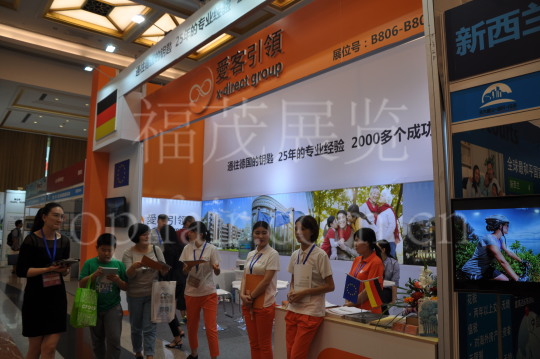Amidst globalization, studying abroad has become a crucial way for many students to broaden their horizons and enhance their competitiveness. Study abroad expos, connecting students with overseas institutions, bring together top universities, educational institutions, and professional services, providing prospective students with a one-stop opportunity to gain information and plan their future. However, with a dazzling array of booths and a vast amount of information, effectively managing your time and accurately obtaining what you need are crucial factors in determining the value of participating.
Preliminary Preparation: Clarify Your Goals and Target Your Purpose
Clearly Define Your Study Abroad Direction and Needs
Before attending an expo, you must clearly define your goals: choose a study abroad country (e.g., English-speaking or minority-language country), a major (e.g., business, STEM, or the arts), your budget, and your long-term career plan. For example, if you plan to apply for a master’s degree in the US, prioritize institutions offering scholarships or internships. If you’re focused on career development, look for university-industry partnerships.
Selecting Exhibiting Institutions and Institutions
Check the expo’s official website or brochure in advance and highlight your target institutions, language test providers (e.g., IELTS/TOEFL), visa service centers, and study abroad agency booths. Create a “priority list” and organize booths by importance to avoid wasting time at irrelevant booths.
Prepare a targeted question list.
Based on your target university, list specific questions, such as:
Application deadlines and document requirements
Course offerings and career support
Scholarship application requirements and success rates
Campus life and cultural adaptation advice
Preparing in advance can help you avoid missing key information on-site.
On-site Strategy: Effective Communication and In-depth Interaction
Prioritize your target booths to seize the initiative.
On the first day of the expo or in the morning, crowds will be lower, so it’s recommended to arrive early and prioritize one-on-one meetings with admissions officers or representatives at your target universities. Proactively share your background (such as GPA, language scores, and internship experience) to demonstrate your sincerity and potential for a good fit, leaving a lasting impression.
Attend lectures and workshops to uncover hidden information.
Many expos offer themed lectures (such as “Prestigious University Application Guide” and “Visa Policy Explanation”) or interactive workshops. Attending these events not only provides authoritative information but also allows for personalized Q&A sessions. For example, a lecture might reveal the expansion of enrollment in a particular program this year or details of visa policy adjustments in a particular country. Collect information and establish connections to build a network.
Get school brochures, course manuals, and contact information, but avoid blindly piling up information. Focus on recording the admissions officer’s email address, social media handles, or WeChat group for follow-up. You can also exchange experiences with fellow exhibitors, share information, and expand your network.
Follow-up: Consolidate your achievements and implement action
Organize your materials and create an application timeline.
Within 24 hours of the exhibition, organize your collected materials by school and program, annotating key information (such as application deadlines and language requirements). Based on your specific circumstances, shortlist 3-5 “goal schools,” “matching schools,” and “safety schools,” and develop a phased application plan.
Proactively contact admissions officers to deepen your impression.
Send a thank-you note to the admissions officer you spoke with via email or social media, briefly summarizing the key points of the conversation (e.g., “Thank you for your recognition of my background in XX”) and including a link to your resume or portfolio (if applying to an art program). This will strengthen your memory and increase your chances of application success. Review your experience and optimize your decision-making.
Review any unanswered questions or newly discovered opportunities (such as a new interdisciplinary program at a particular university) from the expo and further verify them through the official website or email. Also, assess the compatibility between your qualifications and your goals and adjust your application strategy if necessary (such as adding alternative countries or majors).
Study abroad expos are not only information hubs but also a test of personal planning skills. Through precise pre-screening, effective on-site interaction, and ongoing follow-up, attendees can transform fragmented information into a systematic plan, laying a solid foundation for their study abroad applications. Remember, the value of an expo lies not in the number of booths visited but in the actions they take away. Only by proactively participating and making rational decisions can you seize opportunities in global competition and move towards your ideal academic and professional future.







